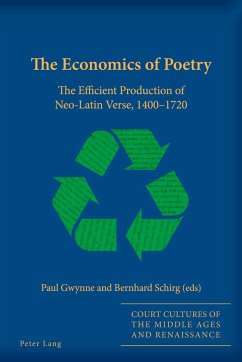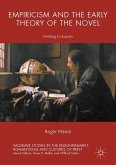The Economics of Poetry takes an innovative approach to the genre of Neo-Latin poetry, encompassing the entire process of poetic production, from composition and physical realization to the formal presentation to the honorand. This process was not predicated upon post-Romantic ideas of inspiration and originality, but rather upon the need to produce literary works in a timely fashion, often (though not exclusively) dependent upon the realities and exigencies of the contemporary political situation.
Applying this approach across more than three centuries of literary production, this volume analyses the techniques employed and developed by authors all around the world to reduce the effort of poetic composition, streamline its production and facilitate its presentation when time was a crucial factor in success. To reveal the efficient techniques which authors employed in order to meet their deadlines, each essay focuses on a variety of works by the same writer and examines the full context of their production. The re-use and recycling of previous texts and rhetorical templates - and even the re-dedication of previously presented manuscripts - emerges as a central and essential modus operandi in response to the strict dictates of fast production.
Applying this approach across more than three centuries of literary production, this volume analyses the techniques employed and developed by authors all around the world to reduce the effort of poetic composition, streamline its production and facilitate its presentation when time was a crucial factor in success. To reveal the efficient techniques which authors employed in order to meet their deadlines, each essay focuses on a variety of works by the same writer and examines the full context of their production. The re-use and recycling of previous texts and rhetorical templates - and even the re-dedication of previously presented manuscripts - emerges as a central and essential modus operandi in response to the strict dictates of fast production.








